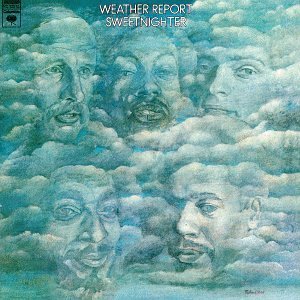
Sweetnighter is the third studio album by American jazz fusion band Weather Report, released by Columbia Records in 1973.

Heavy Weather is the seventh album by Weather Report, released in 1977 through Columbia Records. By 1991, the release had sold 1,000,000 copies in America alone; it would prove to be the band's most commercially successful album and one of the best sellers in the Columbia jazz catalog. DownBeat magazine gave Heavy Weather a 5-star review, and later its readers voted it jazz album of the year.

In a Silent Way is a studio album by the American jazz trumpeter, composer, and bandleader Miles Davis, released on July 30, 1969, on Columbia Records. Produced by Teo Macero, the album was recorded in one session date on February 18, 1969, at CBS 30th Street Studio in New York City. Macero edited and arranged Davis's recordings from the session to produce the album. Marking the beginning of his "electric" period, In a Silent Way has been regarded by music writers as Davis's first fusion recording, following a stylistic shift toward the genre in his previous records and live performances.

Black Market is the sixth studio album by American jazz fusion band Weather Report. Released in 1976, it was produced by Joe Zawinul and Wayne Shorter. It was recorded between December 1975 and January 1976 and released in March 1976 through Columbia Records.

The Complete Bitches Brew Sessions is a four-disc box set by jazz trumpeter Miles Davis compiling recordings between August 19, 1969, and February 6, 1970—including the 1970 double album Bitches Brew in its entirety—and released on Columbia/Legacy on November 24, 1998.
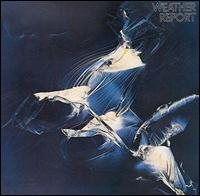
Weather Report is the debut studio album by American jazz fusion band Weather Report, released on May 12, 1971, by Columbia Records. The album was reissued by Sony and digitally remastered by Vic Anesini in November 1991 at Sony Music Studios in New York City.

I Sing the Body Electric is the second studio album released by the American jazz fusion band Weather Report in 1972.

Tale Spinnin' is the fifth studio album by Weather Report, recorded and released in 1975, featuring the addition of drummer Leon "Ndugu" Chancler, who was recruited after Joe Zawinul heard him play with Carlos Santana. Weather Report was recording in the studio next door to Ndugu, and asked him to join them for “one session”. That session ended up lasting a week and produced Tale Spinnin'. Ndugu was asked to join as a permanent member, but decided to stay with Santana.

Weather Report is the tenth studio album by the American jazz fusion band Weather Report, released in January 1982; there was some confusion among consumers and retailers upon its release as the band's first album (1971) was also self-titled. It is the final album featuring bass guitarist Jaco Pastorius and drummer Peter Erskine in the rhythm section.
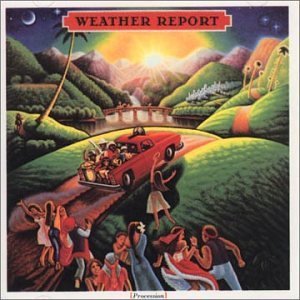
Procession is the eleventh studio album by the jazz fusion band Weather Report. It was released in 1983 through Columbia Records. Although several previous Weather Report tracks included wordless singing, and "And Then" from Mr. Gone included brief lyrics, "Where the Moon Goes" was the band's first track including lyrics throughout, sung by members of The Manhattan Transfer. The band would continue to feature vocals on the next three studio albums.
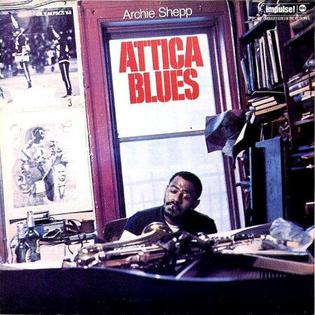
Attica Blues is an album by avant-garde jazz saxophonist Archie Shepp. Originally released in 1972 on the Impulse! label, the album title refers to the Attica Prison riots.

Miles Davis & Gil Evans: The Complete Columbia Studio Recordings is a box set of music by jazz musicians Miles Davis and Gil Evans originally released on CD in 1996 and remastered and re-released in 2004. It collects work from 1957 through 1968 at Columbia Records recording studios.

Water Babies is a compilation album by American jazz trumpeter Miles Davis. It compiled music Davis recorded in studio sessions with his quintet in 1967 and 1968, including outtakes from his 1968 album Nefertiti and recordings that foreshadowed his direction on In a Silent Way (1969), while covering styles such as jazz fusion and post-bop. Water Babies was released by Columbia Records in 1976 after Davis had (temporarily) retired.

Fat Albert Rotunda is the eighth album by jazz keyboardist Herbie Hancock, released in 1969. It was Hancock's first release for Warner Bros. Records after his departure from Blue Note Records. The music was originally done for the TV special Hey, Hey, Hey, It's Fat Albert, which later inspired the Fat Albert and the Cosby Kids TV show.

V.S.O.P. is a 1977 double live album by keyboardist Herbie Hancock, featuring acoustic jazz performances by the V.S.O.P. Quintet, along with jazz fusion/jazz-funk performances by the ‘Mwandishi’ band and The Headhunters.

Domination is an album by jazz saxophonist Cannonball Adderley released on the Capitol label featuring performances by Adderley with an orchestra conducted by Oliver Nelson. The CD release added the bonus track "Experience in E" composed by Joe Zawinul and originally released on the 1970 album The Cannonball Adderley Quintet & Orchestra.

Directions is a compilation album by American jazz musician Miles Davis, released in 1981 by Columbia Records. It collects previously unreleased outtakes that Davis recorded between 1960 and 1970. Directions was the last of a series of compilation albums—mostly consisting of, at that time, previously unreleased music—that Columbia released to bridge Davis' recording hiatus that ended with the Man with the Horn in July 1981.

Electric Bath is an album by trumpeter Don Ellis recorded in 1967 and released on the Columbia label.
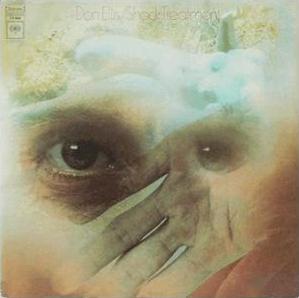
Shock Treatment is an album by trumpeter Don Ellis recorded in 1968 and released on the Columbia label.

The Gil Evans Orchestra Plays the Music of Jimi Hendrix is an album of Jimi Hendrix's compositions by jazz composer, conductor and pianist Gil Evans. The music was arranged by Evans and members of his orchestra. The album was recorded in 1974 and performed by Evans with an orchestra featuring David Sanborn, Howard Johnson, Billy Harper, and John Abercrombie. The album was re-released with additional tracks on CD in 1988.




















